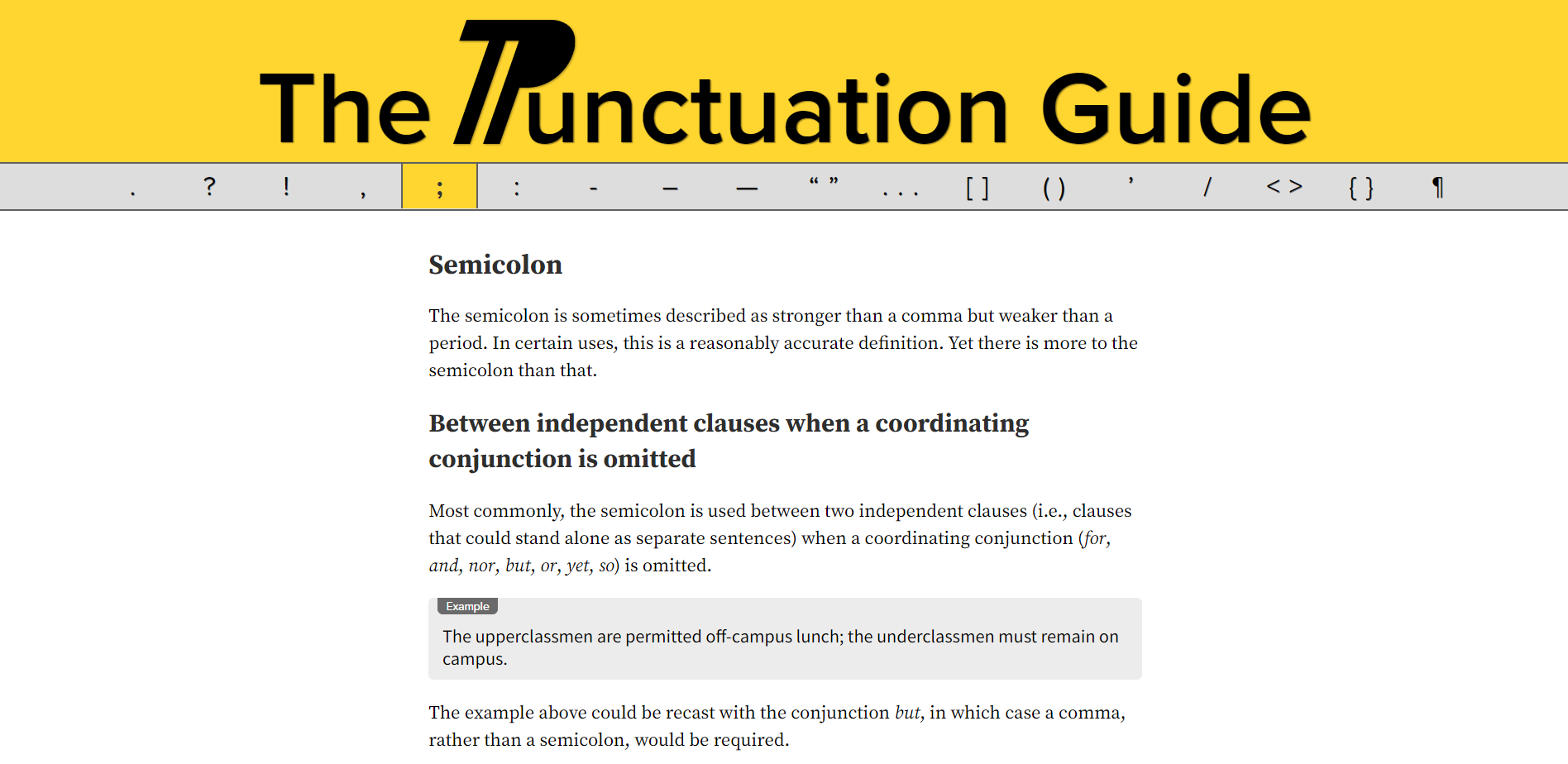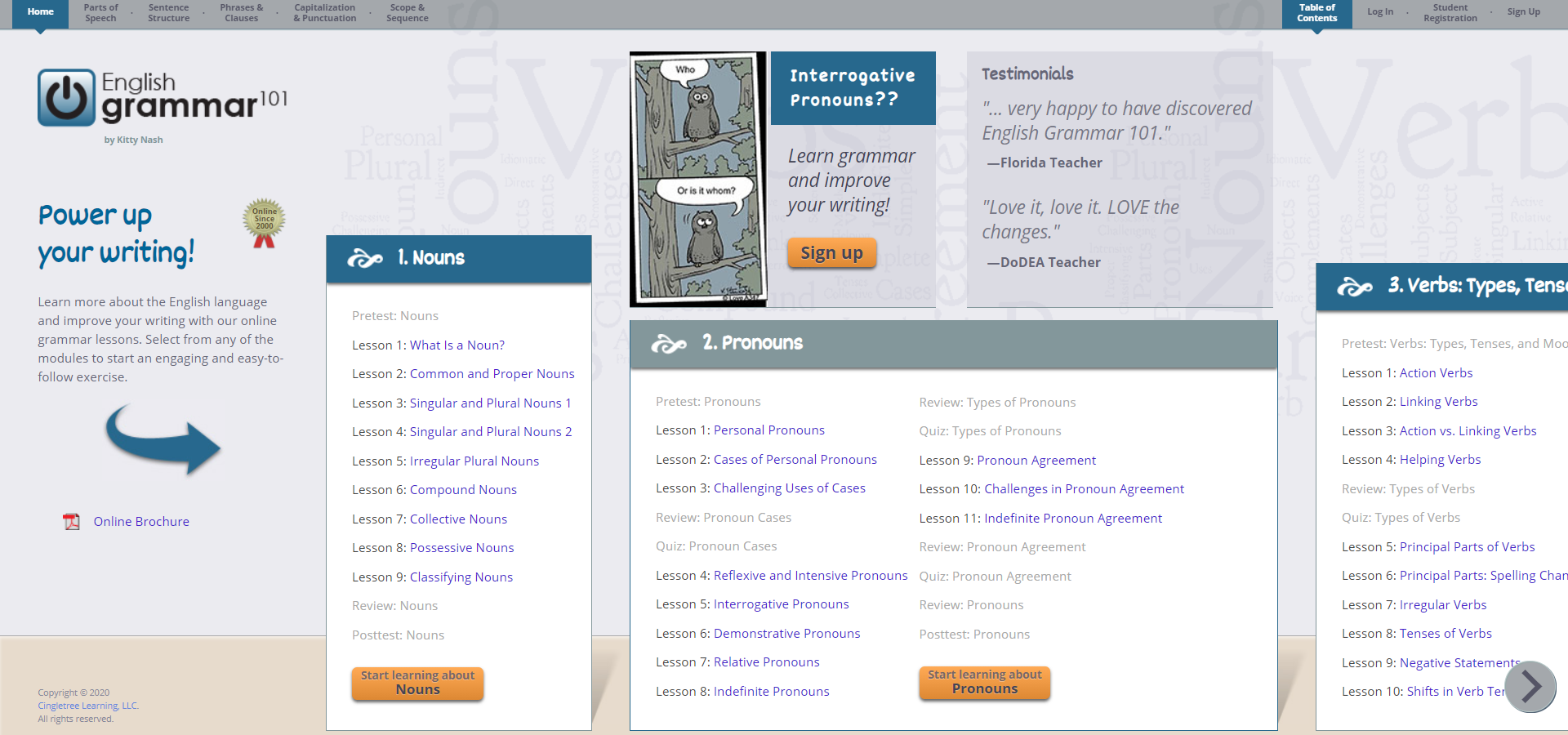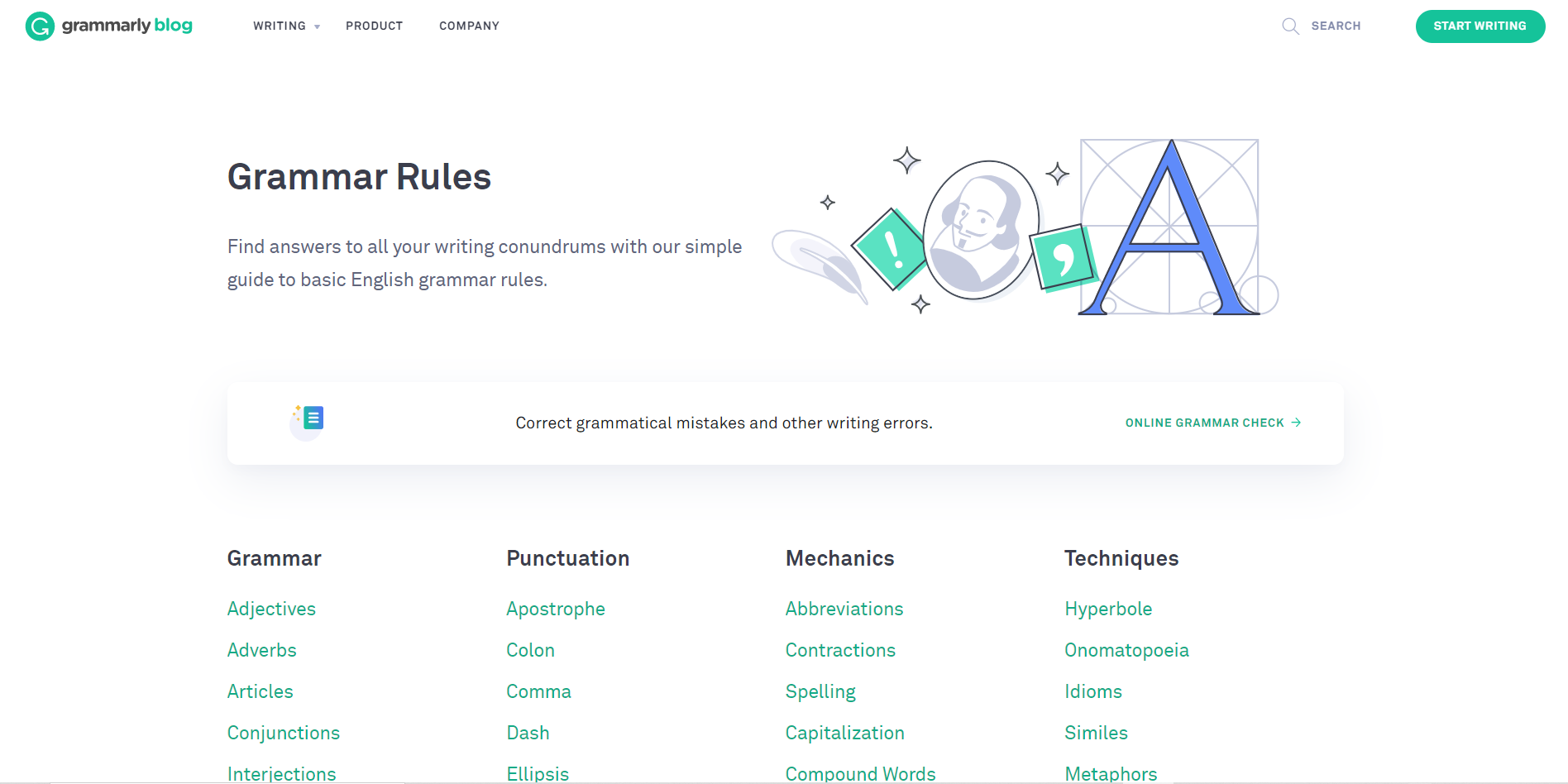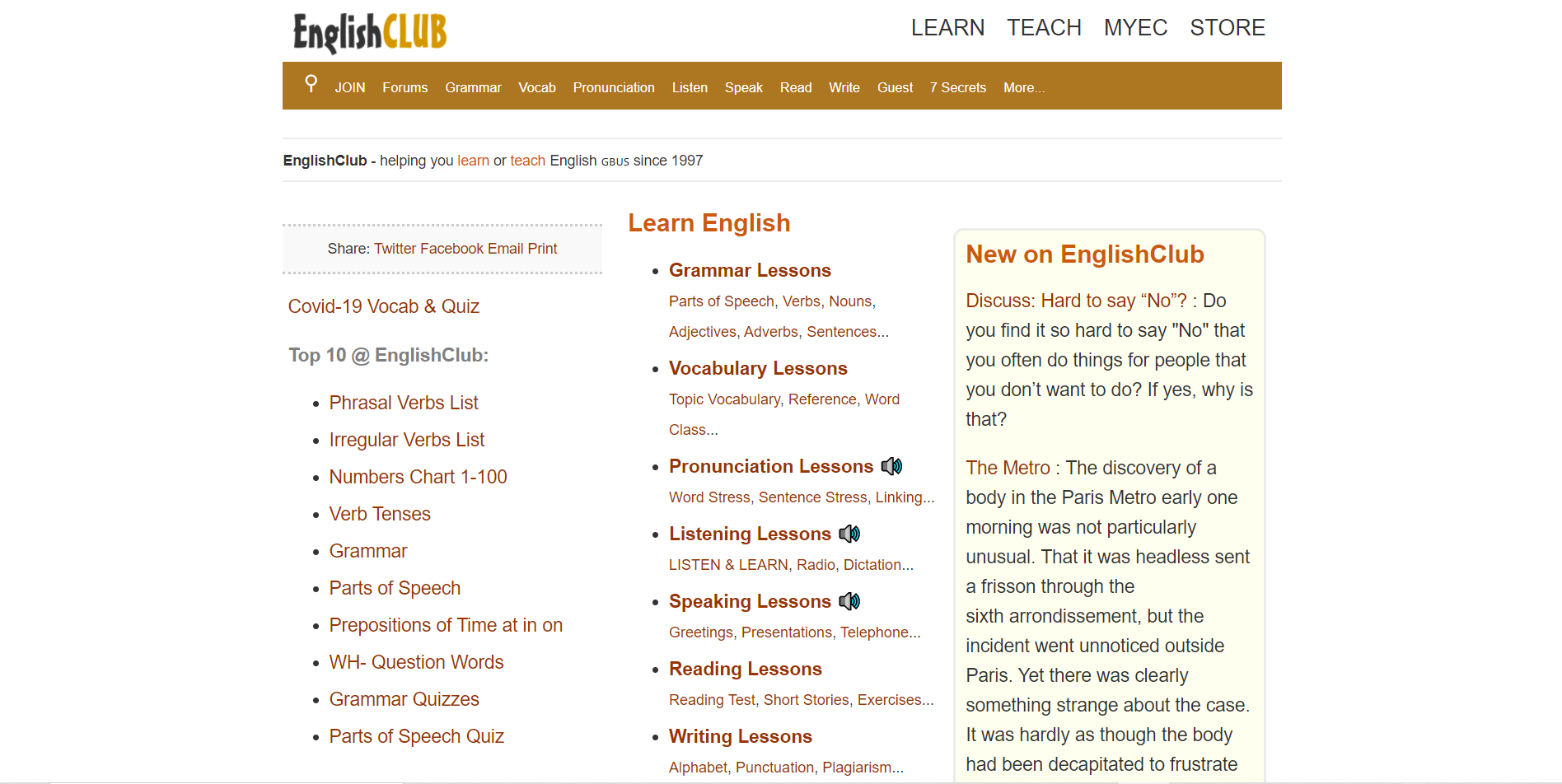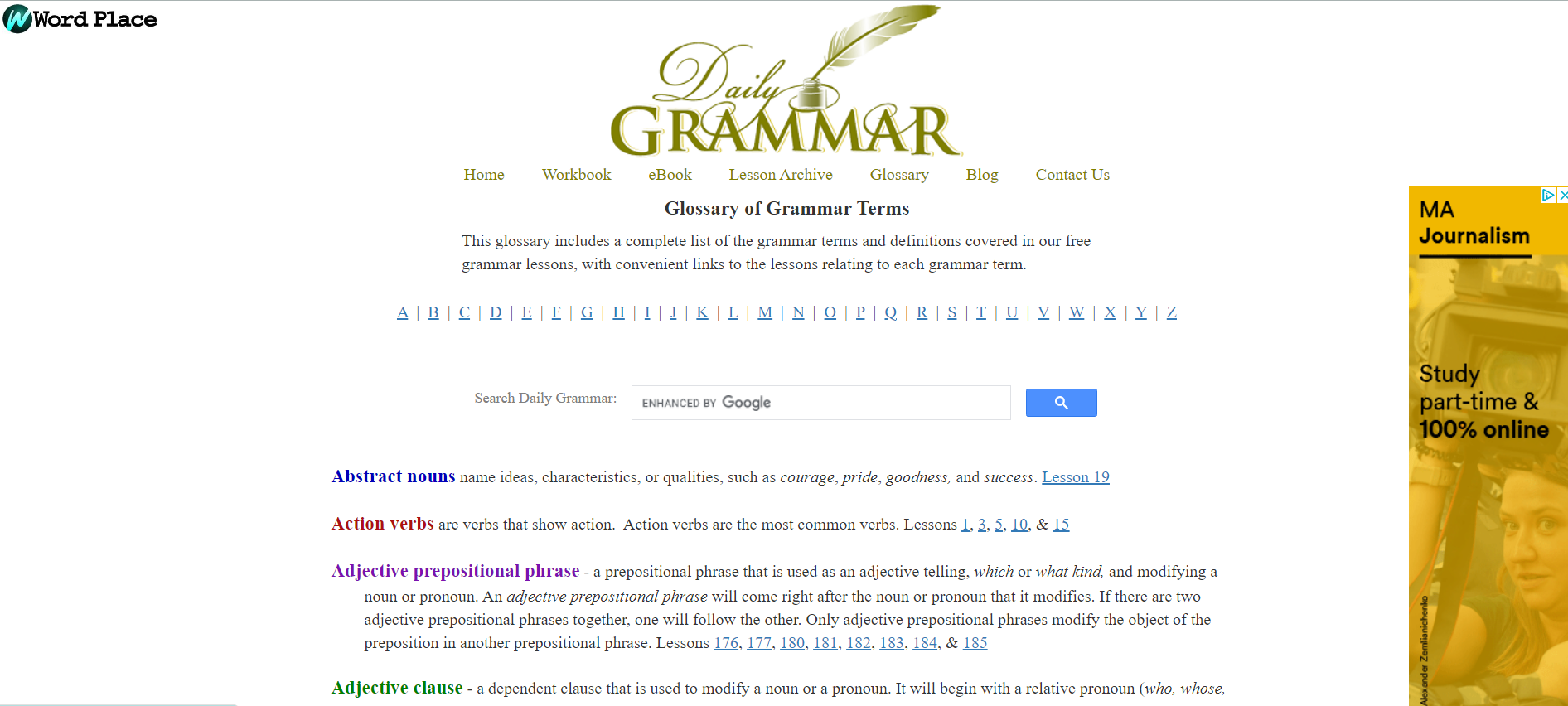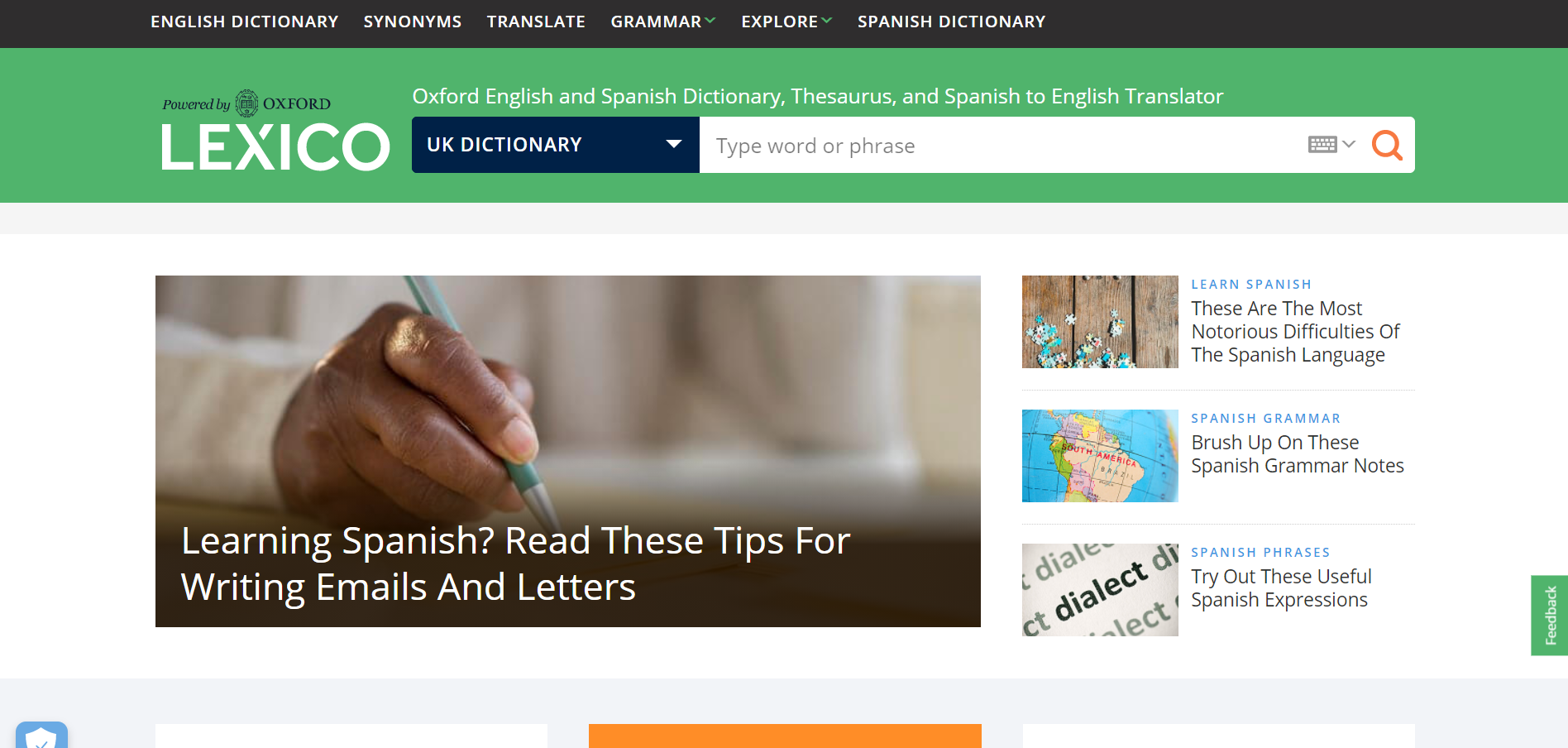The English language isn’t always easy. Whether you’re new to it or you’re a native speaker, it can get confusing, especially with complex rules about correct usage. Thankfully, there are some excellent grammar and punctuation sites that explain everything you need to know.
The following sites are some of the best, offering a mix of lessons, quizzes, and informative blog posts. No matter what level your English is at, these sites can all significantly boost your understanding of the language.
1. The Punctuation Guide
The Punctuation Guide aims to do one thing and to do it well—to explain how to use American punctuation.
On most pages, the top menu consists of nothing more than a row of punctuation symbols. Just click the one you’re interested in to learn more about it.
On the home page, though, punctuation marks are organized into categories, such as terminal points, pausing points, and hyphens and dashes. Either way, it's always easy to find what you’re looking for.
Also useful is the Top 10 Tips page, which addresses some of the most common punctuation mistakes. There’s also a short section on different stylebooks, British versus American punctuation, how to format titles, and how word processors affect punctuation.
2. English Grammar 101
English Grammar 101 is a subscription-based course in grammar, suitable for a variety of educational settings. Both teachers and students can sign up.
The exercises are locked behind that subscription, but the reference material is open to all. So even without a subscription, there's plenty to read.
The lessons are broken up into five main categories: Parts of Speech, Sentence Structure, Phrases & Clauses, Capitalization & Punctuation, and Scope & Sequence.
It's not the best-looking website ever, however. The menus are too small, and some pages require far too much horizontal scrolling to read everything. But beneath that rough exterior is a comprehensive resource on the English language, which practically anyone should find useful.
3. Grammar Girl
Established in 2006, the Grammar Girl’s Quick and Dirty Tips for Better Writing podcast has long been a valuable resource for writers. The Quick and Dirty Tips brand has since expanded into a network of subjects, but the site’s founder, Mignon Fogarty, maintains the Grammar Girl persona to this day.
As well as information about the latest podcast episodes, the Grammar Girl section of the Quick and Dirty Tips website has a superb blog. This features various guest writers, as well as Fogarty herself.
Topics include correct usage, etymology (the origin of words), and general writing tips. For regular email updates, you can sign up for the weekly Grammar Girl newsletter.
4. Grammarly Blog
There's no doubt that Grammarly's blog exists primarily for marketing purposes, but it’s well worth a read anyway.
In addition to posts about how to be a better writer, it has a well-organized Grammar Rules section. This directory of common grammatical terms and punctuation is less comprehensive than some of the other sites on this list, but it covers the basics well and is written in clear, concise English.
Other areas of the Grammarly blog include Trends and Inspiration—both of which are great sources of information for writers.
5. EnglishClub
EnglishClub is designed for anyone who’s learning or teaching English. But it’s more than just an educational resource—it’s also a kind of social network.
Sign up, and you can create your own personal page where you can post blogs, photos, videos, and more. Other users can see this, and you can comment on each other's posts.
You don’t, however, need an account to access any of the other content on the site. That includes grammar and punctuation tips, lessons, quizzes, pronunciation guides, games, and audio downloads. There are also forums for teachers and students.
There’s a huge amount of content on EnglishClub, but it’s all organized in a clear, logical fashion, so it’s easy to find what you need. You can get extra information by signing up for the weekly newsletters.
6. Daily Grammar
Daily Grammar is a collection of 440 lessons and 88 quizzes, covering everything from verbs and pronouns to prepositional phrases and predicate nominatives.
Each lesson consists of a short explanation, followed by a quiz. Answers are hidden under Show Answer buttons if you want to keep track of your scores.
One of the best parts of Daily Grammar is the glossary of terms. It's in alphabetical order, so it's easy to find exactly what you're looking for. Along with definitions, it provides links to all lessons related to that particular subject.
This is all completely free, but you can buy the entire lesson and quiz collection in ebook form as well.
7. Lexico
Lexico is a joint project from Dictionary.com and Oxford University Press. Its dictionary and synonym tools allow you to look up words and phrases in US English, UK English, and Spanish.
Although Lexico is mainly a dictionary and thesaurus, it also offers a range of grammar and punctuation advice including how-to guides, blog posts, and an A to Z grammar directory. There isn’t as much content as some other sites, as Lexico was only launched in June 2019, but it’s sure to continue growing.
Additional sections of the site include Language Questions and Word Lists. There’s also a Word Origins page, which is an interesting resource for fans of etymology.
Which Grammar and Punctuations Sites are Best for You?
Every one of these sites can be useful to native speakers and students of English. How you use them may be different, though, depending on your current skill level.
The structured lesson approach of English Grammar 101, Daily Grammar, and EnglishClub makes sense for non-native speakers, but not so much for those fluent in the language. Skilled speakers would benefit more from dipping into whichever guides they need at a particular time.
Meanwhile, the content on Grammar Girl, Lexico, and the Grammarly blog is great for anyone with an interest in the workings and the history of the English language. These sites are mainly focused on US English, but there’s enough crossover for them to be useful to speakers of UK English as well.
These sites are not the only resources available either. It's also worth checking out grammar and punctuation books, and whatever apps there are for your mobile devices.
Image Credit: PDPics/Pixabay


